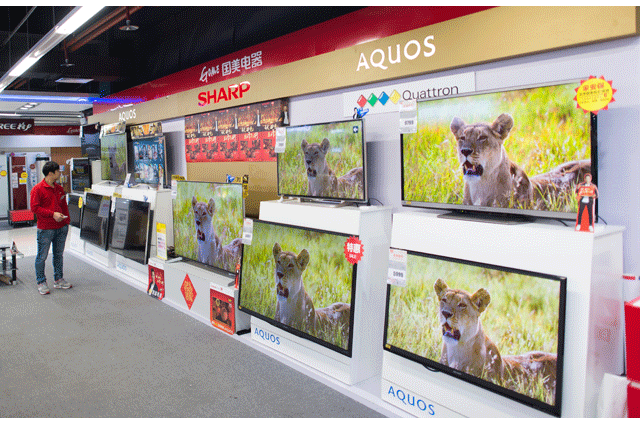On February 25 it appeared that Japan’s electronic industry had reached the end of an era.
A generation ago Sharp, along with Toshiba, Fuji, Panasonic and Sony, represented the Asian nation’s dominance of gadgetry and appliances. Representing a sea change in the industry, Taiwanese firm Hon Hai, which is owned by the even bigger Foxconn multinational and is famous for making Apple Inc.’s iPhones, was poised to purchase 66 percent of the now languishing Sharp.
However the nation’s biggest ever foreign acquisition would bode well for its struggling electronics market, were dismayed later that day as Hon Hai promptly announced that it would postpone the deal. According to The Japan Times, the eleventh hour delay stemmed from “new material information” from Sharp, detailing its ¥350 billion of contingent liabilities.
While Sharp had no comment about these developments, experts began weighing in about he peculiarity of the situation. Alberto Moel, an analyst at Sanford C. Bernstein & Co., told the Times: “It’s odd that after chasing a company for four years you wouldn’t do your due diligence and find out about off-balance sheet contingent liabilities far ahead of striking a final agreement.”
Before this sudden turn of events, Hon Hai’s interest was blatant. The Taiwanese company’s bid of ¥660 billion ($5.8 billion) for Sharp dwarfed that of the domestic Innovation Network Corporation of Japan’s ¥300 billion ($2.7 billion) offering.
Reuters business columnist Quentin Webb called this halt in the proceedings a “messy milestone” that has “descended into farce.” He went on to describe Sharp’s last minute disclosure as either misleading and unprofessional, or incompetent and ignorant about its relationship with Foxconn. He concluded: “Taking over Sharp was already bold. The last-minute surprise makes it even more so.”
Image: Sorbis / Shutterstock.com









